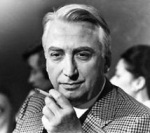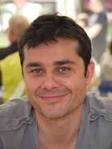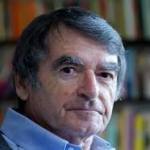Laurent Binet, author of the remarkable novel (in French), The Seventh Function of Language, seems succinctly to describe his technique on p.333 of the English edition: ‘one fanatics gently’. But is that English? Is the original, ‘on forcène doucement’, French? ‘The subject seems like it ought to be French, but when Bayard turns to Simon, his partner makes a gesture that suggests he has no clue either.’ Superintendent Bayard is the policeman assigned to probe the death of master linguist and critic Roland Barthes, run over by a laundry van in Paris on 25 March, 1980. His co-opted helpmate is young graduate student Simon Herzog, just beginning a university teaching career as a specialist in the latest theories of language that have gripped the French intelligentsia. The pair’s baffled inquiry into a possible murder takes them from the intellectual circles of the Left Bank to the political intrigues of the Quai d’Orsai, where the Gaullist President Giscard d’Estaing faces an imminent challenge from the socialist Francois Mitterrand. It sends them hot foot over the border into a revolutionary-minded Italy and eventually across the Atlantic to Cornell University in New York state, where outside the little town of Ithaca they attend, as well as an orgy and a ferocious dog attack, a star-studded conference mockingly entitled ‘Shift into Overdrive in the Linguistic Turn’.
‘Gently’ isn’t exactly the way this rollicking, rumbunctious novel proceeds. Binet is a sort of Rabelais of the Saint-Germain-des-Prés intellectual scene, powering his fictitious characters along on a tide of fierce professional ambition and over-the-top carnality. Even the common-sensical policeman ends up having three-way sex with a prosthesis. On the other hand there’s always something loving about satire that works, and this tearing apart of ‘germanopritin’ affectations circa 1980 is nothing if not affectionate. Still what shall we make of the invented verb ‘forcener’ that a fictional character called Philippe Sollers uses as the departure point of his rhetorical tour-de-force in a linguistic duel held under the auspices of the secretive Logos Club in Bologna? As Sollers begins, ‘a wave of perplexity moves through the 175 feet of the room. The non-francophone spectators check that their simultaneous translation machine is tuned to the right channel.’ Sollers/Binet have fun: ‘Forcène…forcène…Fort….Scène…Fors…Seine…Faure (Félix Faure)… Cène’. Former French President Félix Faure ‘died of a blowjob and a heart attack’. ‘Cène’ suggests ashes. Or should the chain of associations read: ‘La force. Et le scène. La force sur scène.’ This riff is productive for a literary theorist of the day (who has of course read Marx and Freud too) because it brings in ‘power’ and ‘the stage’. Actually to my mind ‘forcener’ (invented from the adjective forcené meaning fanatic) best of all simply echoes the everyday Italian: ‘forsé no’. ‘Perhaps not’. My (freely imagined but why not) reading of the 45-year-old Laurent Binet is that he perhapsnotted gently, but spectacularly, about a French intellectual generation that shook the world.
Was Barthes not murdered for a document he had in his pocket concerning the seventh and perhaps ultimate function of language, namely its magic power to persuade? Binet told Huff Post France in an interview published on 23 October 2015 that he was inspired to make his satire a detective story by the late Umberto Eco’s 1980 bestseller The Name of the Rose. Eco, an academic linguistician, broke new ground with his fictional debut. Like his French counterparts Eco owed a debt to the Russian philologist Roman Jakobson, founder of what became the discipline of semiology that so gripped a later generation. Semiology was about reading the world as an endless complexity of systems of signs, and signs, when what they point to is uncertain, when they are potentially meaningless, have the status of clues for any inquirer who thinks they might yet come to mean something, if he/she is brilliant, or diligent enough, to pursue the inquiry. So the police procedural links with the academic passions of Barthes, and also those of the arch-posthumanist Michel Foucault, and of the one-time Maoist Sollers and his Bulgarian wife Julia Kristeva, and the inventor of deconstruction Jacques Derrida, never really at home in the germanoprintin milieu. Binet, evidently with his heart in the right place, gives the gentlest and most heroic of roles to Derrida in the first of a series of denouements to the action, as it unfolds at Cornell.
The real counterparts of a number of Binet’s characters, including a very unlovably portrayed Sollers and Kristeva, together with French philosophy’s lasting pin-up boy Bernard-Henri Lévy, are still alive, and one feels they might have considered suing, had they been born and bred Anglo-Saxon. But in fact that would have made fools of these sophisticated thinkers — ‘fanatics’, let’s say, overdue for a dose of ‘perhapsnotting’ — because it would have forced them into declaring they didn’t understand the difference between fact and fiction. The text itself takes up the philosophical problem of the ontological status of fictional characters, In what way do they ‘exist’? Surely ‘I exist, Madame Bovary does not’. Well, yes and no. Binet maximizes the ontological ambiguity by having one Morris J. Zapp give a paper at the Cornell conference: ‘Fishing for supplement in a deconstructive world’. When the sleuths can’t quite understand what’s being said they seek a sort of simultaneous translation from a clever academic based in Birmingham, England, sitting next to them in the audience. Morris J. Zapp was in fact — in fact? — a character invented by professor, and novelist, David Lodge, famous for his trilogy of hilarious academic satires staring with Changing Places (1975). Lodge, at the time, was, like Binet today, both someone who deeply appreciated contemporary linguistic theory and a novelist gifted enough to be able to laugh at the absurd academic practices, and dodgy private lives, that grew out of it.
Binet told Huffpost France :’I treated all my characters, real, alive or dead, fictional or non-fictional, as characters. In the process of creation, I didn’t have Saint-Germain in mind. Saint-Germain is a complicated microcosm where everyone knows everyone else and which everyone finds important and where there are numerous alliances and emnities. My publisher left me great freedom and I’m grateful for that. It’s interesting to observe the reactions, diverse and contradictory, sometimes in regard to the same character; some people think I’ve caricatured this or that one too much while others think I’ve treated them with too much consideration. No doubt that’s just as it should be. As Kundera said, the novel is a place of ambiguity. A roman a thèse [in which the real is barely masked] is a contradiction in terms. ‘ (This is my translation. You can check out the occasionally garbled original here.)
Another Anglo-Saxon character in the novel is the American philosopher John Searle, the Francophile in life but Anglo-Saxon analytical practitioner in philosophy who had a famous and bitter quarrel with Derrida and lost (although deluded American colleagues still think he won.) Read how the fate of Searle, ‘with the mentality of a cop’ (a piece of abuse Binet took from Derrida, if I remember rightly) works out in this prize-winning novel first published in France on 2015, the year of the centenary of Barthes’ untimely death. Bar a very few mistakes (‘phrase’ in French is not ‘phrase’ in English) the English translation by Sam Taylor makes for lively, gutsy reading. The result is a stylish, brainy Euro-romp through the year 1980 that also includes car-chases, scheming politicians, Italian anarchists and Bulgarian and Russian secret-service types. I loved it. Meanwhile I wrote about Searle and Derrida in my 2014 book A Shoe Story.






